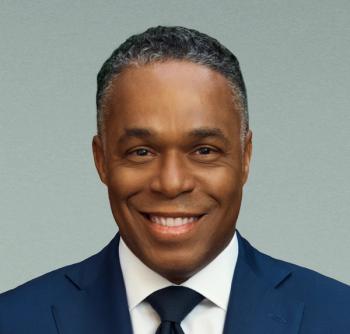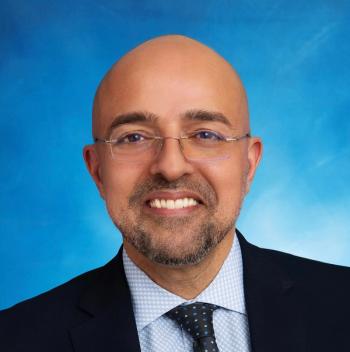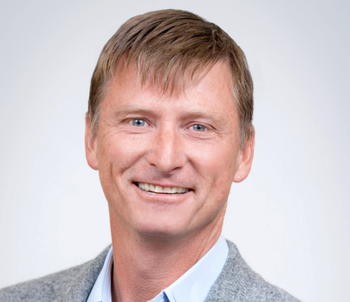
Health equity and HIMSS: Harold Wolf says it's 'our responsibility'

The president and CEO of the organization said it's going to be a growing focus over the next several years. He talked about working to close inequities in America and worldwide.
Orlando, Fla. - Harold “Hal” Wolf, president and CEO of the Healthcare Information and Management Systems Society, said health equity is going to be a heavy focus of the organization in the coming years.
Wolf spoke with members of the media Monday morning on the first day of the HIMSS Global Health Conference & Exhibition. He talked about the organization’s role in trying to reduce disparities in healthcare, a growing focus of the industry and the federal government in the wake of the COVID-19 pandemic.
“HIMSS is going to be working very hard on health equity over the next multiple years, because we see it as our responsibility,” Wolf said Monday.
Wolf is focused on health equity domestically and globally. Last month, Wolf had the chance to talk about global health equity with
“Over the last couple of years, the pandemic has really raised the curtain on so many inadequacies and so many gaps in health equity,” Wolf said.
Wolf acknowledged that eliminating all healthcare disparities is an extraordinarily difficult proposition.
“Our accountability is to find those differences and do everything we can to equalize them,” Wolf said. “Make it fair. That’s what equity is about. It’s about fairness.”
There are technological challenges but also public policy challenges as well, he said. But he said technology offers vast potential in reducing gaps in health equity.
“The reality is that we’ve learned there’s an incredible vulnerability, we know we have massive vulnerabilities in our population health data and ecosystem,” Wolf said.
The pandemic vividly illustrated the healthcare system’s weaknesses in data. But Wolf also said there are “massive opportunities” in the data ecosystems being developed.
“We have to do it,” Wolf said. “We can’t go back to normal. We can’t look at it as if it's just my hospital or just an individual.
“We have to look at it collectively from a global standpoint,” he said. “And if we do that, we'll not only improve everyone’s lives, we’ll not only improve our opportunity on health, we’ll also prepare ourselves for the next pandemic, and there will be one. We’re a mobile society.”
Wolf cited three advances that would be game changers if they were more widely adopted and available for all patients: biomedical identification; immunization records, and prescription drug history. If doctors could even just have easy access to immunization records globally, Wolf said, “That alone would have such a significant impact.”
If all three of the items on Wolf’s wish list were a reality, Wolf said, “We would make a difference to millions and millions of people.”
Telehealth has the potential to enable more people to gain access to healthcare, but in the United States, high-speed internet must be widely available nationwide, Wolf said.
Healthcare leaders have said some patients
To make a difference globally, America and other more affluent nations must work to ensure access to quality healthcare everywhere, Wolf said.
From a worldwide perspective, Wolf also said it’s important to find technological solutions that can be implemented right now in countries with less sophisticated technology. While wireless carriers in America have moved to 5G service, Wolf suggested it would be wise to develop applications that can work on 3G service in countries with less infrastructure.
“We can take the information and the data and the capabilities that are already there, and scale them to 3G, so that underserved populations can gain access,” Wolf said.
He pointed to the COVID-19 pandemic and the need to work globally, including the distribution of vaccines. The lack of truly global access to the vaccines has helped contribute to the emergence of new variants, and that will continue in the future, unless it’s addressed.
“We’re not in isolation anymore,” Wolf said. “You can’t put up a wall. We’re all in this together.”
To that end, HIMSS is expanding its reach globally. The organization continues to add more members and partners in Europe and Asia. HIMSS now has about 115,000 members, compared to 70,000 members less than five years ago, Wolf noted.
HIMSS also will be working to assist refugees from Ukraine in the wake of Russia’s invasion, Wolf said.







































